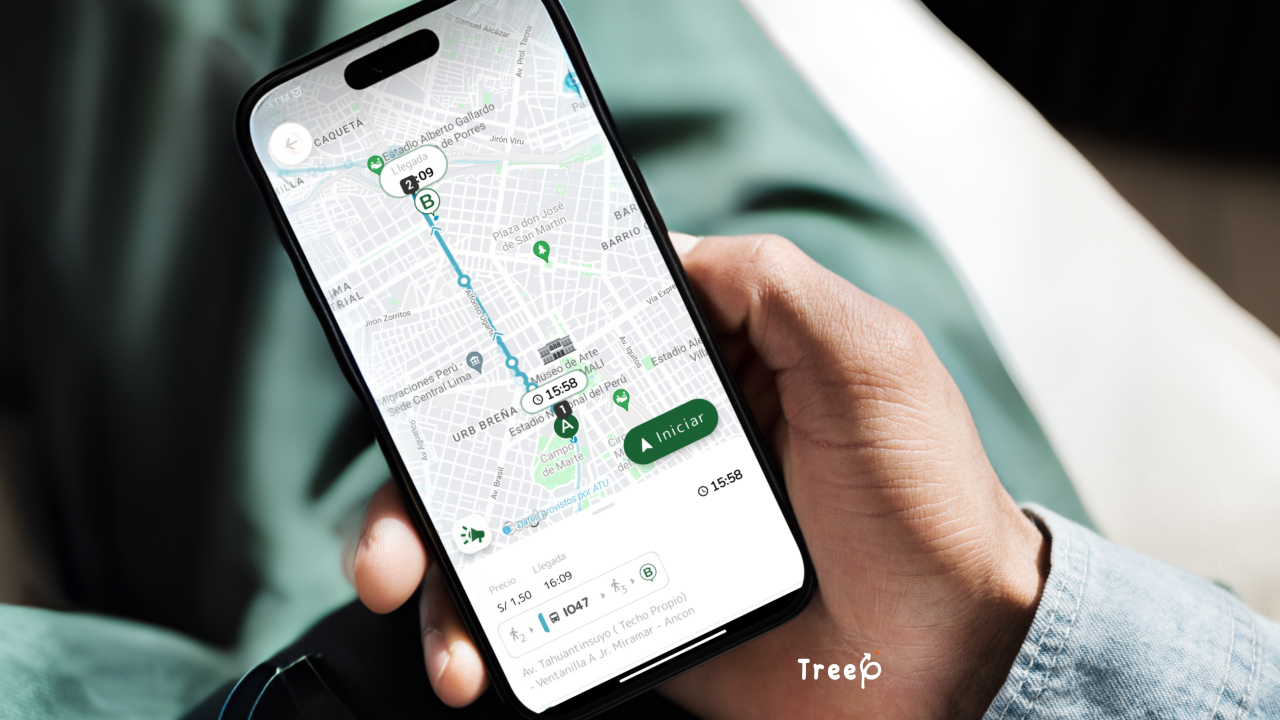
The technology created by the Argentine company Ualabee offers real-time information on the entire bus system, as well as availability of bicycles and scooters in Lima and Callao.
Transportation systems are a great pain for citizens in much of Latin America and Peru is no exception. In the Andean country, chaotic traffic generates an annual loss of almost US$3 billion, along with an average of 100 hours per person trapped in some means of transportation in Lima. This uninspiring outlook is the perfect scenario for the Argentine startup Ualabee to launch Treep, its mobility application that will be available from this Thursday.
The app seeks to optimize urban traffic by providing information on the routes and schedules of urban transport, micro-mobility and local services, with suggestions to make the users' trip more efficient according to time, distances, costs and unforeseen events.
“Peru faces a pressing need for more organized public transportation, given that 70% of Peruvians use it,” explains Alexis Picón Guell, COO of Ualabee . “[The app ] aims to positively impact urban circulation, the quality of trips and the economy of cities. Its greatest differential is that it is created by Latinos who understand the needs of each Latin American country.”
José Solís Valencia, Country Manager of Ualabee in Peru, adds: “We come with a technological solution proven in other cities such as Buenos Aires, Bogotá, and Santiago de Chile, which also have an amount of travel attention of the magnitude that Lima requires” .
Ualabee is a company originally from Córdoba that operates in seven countries and 45 cities in Latin America. Additionally, they are the local provider of transportation information for companies like Google and AWS.
José Solís Valencia points out that although there are similar alternatives such as Waze or TuRuta in the country, their differential value is to offer users real-time information on the entire city's bus system. This includes the remaining time for the bus to arrive at the location where the user is located, its quality of service, and cleaning status as it incorporates a collaborative chat integrated into the application.
This way, users can stay informed about any setbacks that may arise on the slopes, as well as comment on the status and quality of the public transport service they use.
Furthermore, given its agreement with the Urban Transportation Authority for Lima and Callao (ATU) and the Association of Urban Transportation Concessionaires (ACTU), the information that Treep receives through users will be aimed at improving the public transportation system of Peru.
“Our goal is to be able to reduce the amount of exposure at bus stops, traffic, pollution and noise,” explains José Luis Valencia.
On the other hand, cyclists and scooterists will know the number of units available for rent thanks to the agreement signed with Citibike and Woosh. This service becomes even more relevant considering the significant increase in bike lane use during the pandemic. According to data provided by the Municipality of Metropolitan Lima, in 2020 the number of Peruvians who chose to travel by bicycle reached 102,000 and their trips accounted for 26% of the city's total in 2022.
Likewise, between its arrival to the country in September 2023 and January 2024, Woosh reported 27,000 Peruvians who used its e-scooter rental services as an alternative to avoid traffic.
“In Peru we also want to be an ally in combating citizen insecurity, so that our users will be able to share their trips with their loved ones,” adds Valencia.
The first goal for Treep is to reach 500,000 downloads by the end of 2024 and to do this they will be working in the coming months on different promotions and with the actors in the ecosystem.
“We know the path, we have traveled it in other cities; that is why we believe that we have the technology that supports this level of interactions,” concludes José Luis Valencia.









